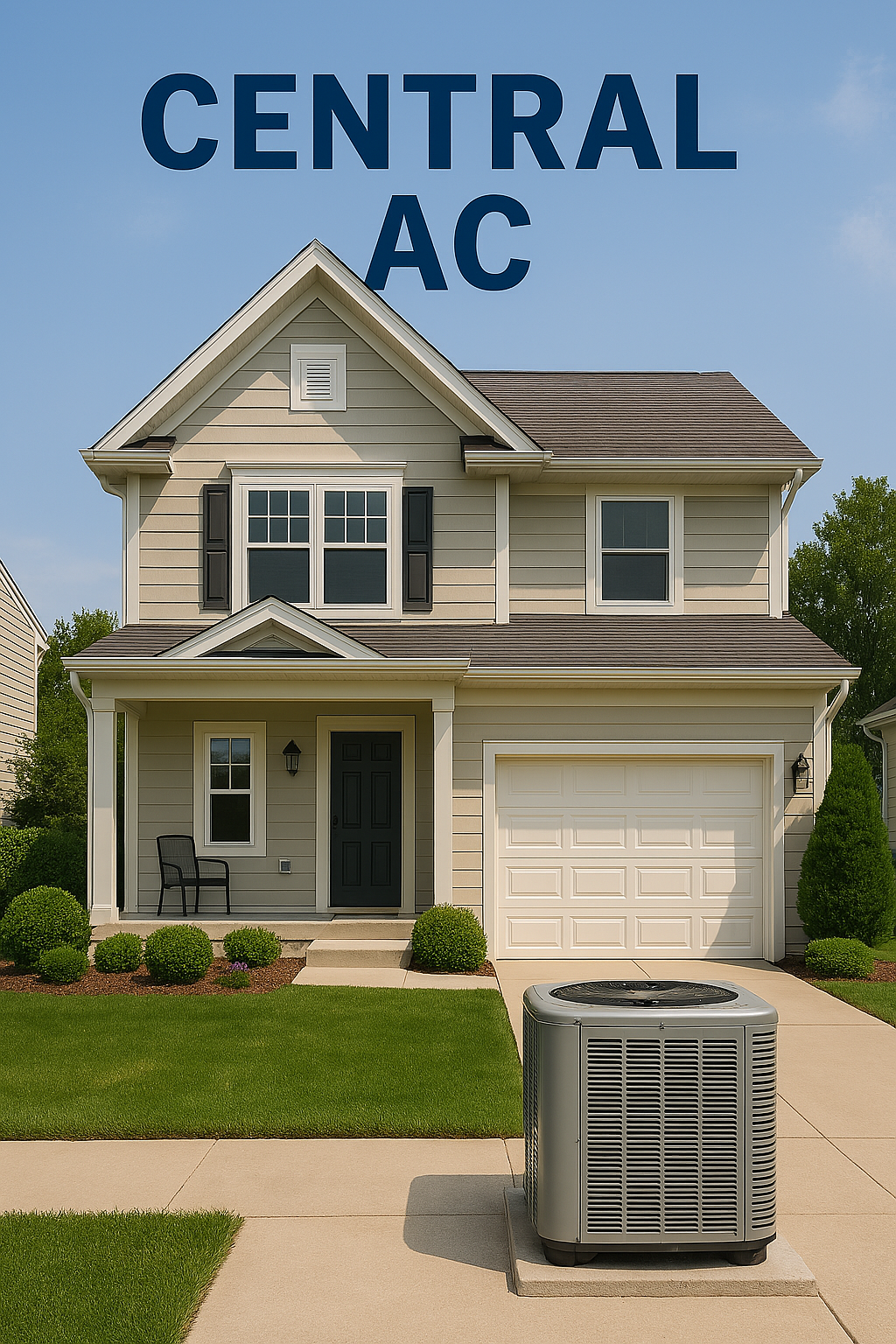Selecting the right central air conditioner is crucial for ensuring comfort and energy efficiency in your home. This guide outlines four essential steps on how to choose a central air conditioner that meets your needs and budget.
🏠 Step 1: Assess Your Home’s Cooling Requirements
Before purchasing a central air conditioner, evaluate your home’s cooling needs. Factors such as square footage, insulation quality, window placement, and sun exposure significantly impact the size and type of AC unit required.
Air conditioners are rated in tons, indicating their cooling capacity. As a general guideline, a one-ton unit can cool approximately 600–800 square feet. For instance, a 1,520-square-foot home would typically need a 2.0-ton AC unit.
Why Proper Sizing Matters:
- Undersized Units: May run continuously, leading to increased wear and higher energy bills.
- Oversized Units: Can short-cycle, failing to dehumidify properly and causing temperature fluctuations.
Consulting with HVAC professionals can provide a precise assessment tailored to your home’s specific characteristics.
⚙️ Step 2: Select the Appropriate Type of Central Air Conditioner
Understanding the different types of central air conditioners helps in making an informed decision:
- Single-Stage Units: Operate at full capacity or not at all. They are cost-effective but less efficient.
- Two-Stage Units: Can run at low or high speeds, offering better energy efficiency and comfort.
- Variable-Speed Units: Adjust cooling output dynamically, providing optimal energy savings and consistent indoor temperatures.Wikipedia
Your choice should align with your comfort preferences, budget, and existing HVAC infrastructure.
🌿 Step 3: Evaluate Energy Efficiency Ratings
Energy efficiency is a critical factor in choosing a central air conditioner. The Seasonal Energy Efficiency Ratio (SEER) measures the cooling output divided by energy consumption. Higher SEER ratings indicate greater efficiency.Wikipedia
In Ontario, common residential units range from 13 to 16 SEER. Opting for a higher SEER unit may involve a higher upfront cost but can lead to significant savings on energy bills over time.
🛠️ Step 4: Choose a Qualified HVAC Contractor
Professional installation is vital for the optimal performance of your central air conditioner. Ensure your HVAC contractor possesses the necessary licenses and certifications, such as:
- Gas Technician License
- 313A or 313D Refrigeration License
- Ozone Depletion Prevention (ODP) Certification
- Electrical Safety Authority (ESA) Permit
Additionally, inquire about warranties, maintenance plans, and customer reviews to ensure quality service.
